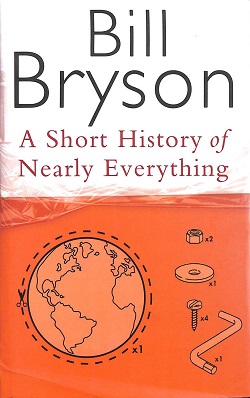Bill Bryson The Lost Continent Pdf Editor

.THE NUMBER ONE SUNDAY TIMES BESTSELLER - SUNDAY TIMES SCIENCE BOOK OF THE YEAR 2019'A directory of wonders.' – The Guardian'Jaw-dropping.'


– The Times'Classic, wry, gleeful Brysonan entertaining and absolutely fact-rammed book.' – The Sunday Times' It is a feat of narrative skill to bake so many facts into an entertaining and nutritious book. ' – The Daily Telegraph‘We spend our whole lives in one body and yet most of us have practically no idea how it works and what goes on inside it.
The idea of the book is simply to try to understand the extraordinary contraption that is us.’Bill Bryson sets off to explore the human body, how it functions and its remarkable ability to heal itself. Full of extraordinary facts and astonishing stories The Body: A Guide for Occupants is a brilliant, often very funny attempt to understand the miracle of our physical and neurological make up.A wonderful successor to A Short History of Nearly Everything, this new book is an instant classic. It will have you marvelling at the form you occupy, and celebrating the genius of your existence, time and time again.‘ What I learned is that we are infinitely more complex and wondrous, and often more mysterious, than I had ever suspected. There really is no story more amazing than the story of us.’ Bill Bryson.
The Lost Continent Pdf
Bill Bryson was born in Des Moines, Iowa, in 1951. His bestselling books include The Road to Little Dribbling, Notes from a Small Island, A Walk in the Woods, One Summer and The Life and Times of the Thunderbolt Kid. In a national poll, Notes from a Small Island was voted the book that best represents Britain. His acclaimed work of popular science, A Short History of Nearly Everything, won the Aventis Prize and the Descartes Prize, and was the biggest selling non-fiction book of its decade in the UK. His new book The Body: A Guide for Occupants is an extraordinary exploration of the human body which will have you marvelling at the form you occupy. Bill Bryson was Chancellor of Durham University 2005–2011. He is an Honorary Fellow of the Royal Society.
He lives in England.